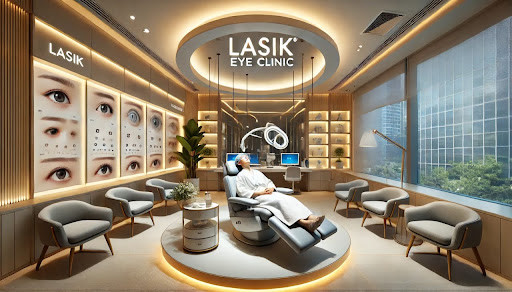Ophthalmologists play a vital role in preserving and restoring vision by diagnosing and treating a wide range of eye conditions. These medical doctors are trained not only to prescribe glasses and contact lenses but also to perform surgeries and treat complex eye diseases. With advancements in diagnostic tools and treatment options, ophthalmologists are now more equipped than ever to manage a wide spectrum of eye health issues. Understanding the most common smile pro conditions they address helps patients stay informed about their eye care and know when to seek professional help.

- Cataracts: Clouding the Vision
Cataracts are one of the most prevalent eye conditions worldwide, especially among the aging population. A cataract occurs when the natural lens of the eye becomes cloudy, leading to blurred vision, difficulty seeing at night, and sensitivity to light. Cataracts develop gradually and may not cause noticeable symptoms at first. Ophthalmologists treat cataracts with a surgical procedure that replaces the cloudy lens with an artificial intraocular lens (IOL). This outpatient surgery is safe, highly effective, and can significantly improve a patient’s quality of life by restoring clear vision.
- Glaucoma: The Silent Thief of Sight
Glaucoma is a group of eye diseases characterized by damage to the optic nerve, often due to increased intraocular pressure. It is commonly referred to as the “silent thief of sight” because it progresses slowly and painlessly, often going unnoticed until irreversible vision loss has occurred. Regular eye exams are crucial for early detection. Ophthalmologists treat glaucoma with medications such as eye drops, laser procedures, or surgical interventions to lower intraocular pressure and prevent further nerve damage. Early treatment is essential to preserving vision.
- Age-Related Macular Degeneration (AMD): Central Vision Loss
Age-related macular degeneration affects the macula, the central part of the retina responsible for sharp, central vision. AMD is a leading cause of vision loss in people over 60 and comes in two forms: dry and wet. Dry AMD progresses slowly and may cause gradual vision distortion, while wet AMD involves abnormal blood vessel growth and can lead to rapid vision loss. Ophthalmologists treat wet AMD with anti-VEGF injections to reduce blood vessel growth and manage fluid leakage. Although there is no cure for AMD, early detection and lifestyle changes can slow its progression.
- Diabetic Retinopathy: A Complication of Diabetes
Diabetic retinopathy is a serious eye complication that affects individuals with diabetes. High blood sugar levels can damage the blood vessels in the retina, leading to swelling, bleeding, and even retinal detachment. In the early stages, diabetic retinopathy may not cause noticeable symptoms, making regular eye exams critical for individuals with diabetes. Ophthalmologists manage this condition through laser treatments, vitrectomy surgery, and injections to control swelling and abnormal blood vessel growth. Proper blood sugar management and early intervention are key to preventing vision loss.
- Refractive Errors: Correcting Vision Clarity
Refractive errors, including myopia (nearsightedness), hyperopia (farsightedness), astigmatism, and presbyopia, are the most common causes of blurred vision. These occur when the shape of the eye prevents light from focusing directly on the retina. Ophthalmologists correct refractive errors through prescription eyeglasses, contact lenses, or refractive surgery such as LASIK or PRK. These procedures reshape the cornea to improve how light rays are focused. Addressing refractive errors not only improves visual acuity but also enhances a person’s daily functioning and quality of life.
Conclusion: The Importance of Regular Eye Exams
Ophthalmologists are essential partners in maintaining eye health and preventing vision loss. They diagnose and treat a wide range of eye conditions, from common refractive errors to serious diseases like glaucoma and macular degeneration. Early detection through comprehensive eye exams is critical, as many eye conditions develop silently. With timely treatment and the latest medical advancements, many eye diseases can be managed effectively or even reversed. Prioritizing regular visits to an ophthalmologist helps ensure long-term vision health and overall well-being.
